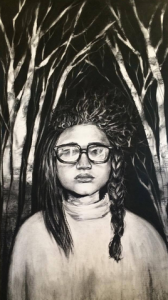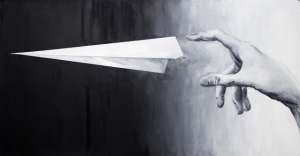Together In Song: Boston Gay Men’s Chorus Comes to Holy Cross
March 31st, 2016 by arouel16There is something undeniably unique about a chorus. If you’ve ever sung in one or had the chance to attend a choral performance, then you’ll understand the deeply compelling, innately human power of voices joining together in song. Yet choruses are more than just a source of entertainment; they build community, encourage social change, and strike at the very essence of what it means to be human. Since 1982, the Boston Gay Men’s Chorus, an ensemble of 175 voices, has inspired audiences and communities around the world simply by telling stories of who they are. On Saturday April 2 at 3pm, the BGMC will bring their stories to Holy Cross for a performance at the Dinand Library.
“When voices combine, something special happens” says Dan DiCenso, Assistant Professor of Music at Holy Cross who helped coordinate the concert and bring the BGMC to Mount Saint James. While teaching an honors seminar on music and gay rights this semester, Professor DiCenso thought a performance from the BGMC would be an effective way for his students “to witness how a choir constitutes community and how choral music functions as an agent of change.” With over 20 department sponsors, the event has attracted the enthusiasm and anticipation of a diverse cross-section of the college. Professor DiCenso hopes this concert not only demonstrates the “power of choral music,” but “raises important questions about what people need in order to feel a part of a community.”
According to Reuben Reynolds, Music Director of the BGMC, gay men’s choirs around the world have played a critical role in sparking dialogue and achieving rights for the LGBTQ community. As one of the seven oldest gay choruses in the country, the BGMC is affectionately hailed as a “grandparent of the entire movement,” reaching “more than 10,000 people each season and thousands more through recording, television and internet broadcasts.” Gay men’s choirs also serve as “important communities for their members” says Reynolds. “The BGMC is like a family. We’re always there for one another.”
The concert program, entitled “Capable of Anything,” is centered around the BGMC’s 10 day tour to the Middle East in June 2015. Four songs in the program will document the BGMC’s experience as the first LGBT chorus to perform in the Middle East, featuring a slideshow with photographs from the tour.
“Music creates dialogue and breaks barriers” says Reynolds. “Holy Cross has been so open and affirming about this concert. We were pleased to be asked to perform and we’re very excited to share our stories with [Holy Cross].”
The concert is free and open to the public. Limited seating is available on a first-come, first-served basis. Doors open at 2:30pm. Learn more about the BGMC’s upcoming performance at Holy Cross here.
– Adam Ouellet ’16



